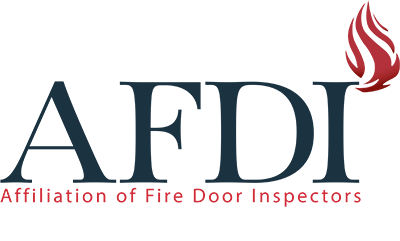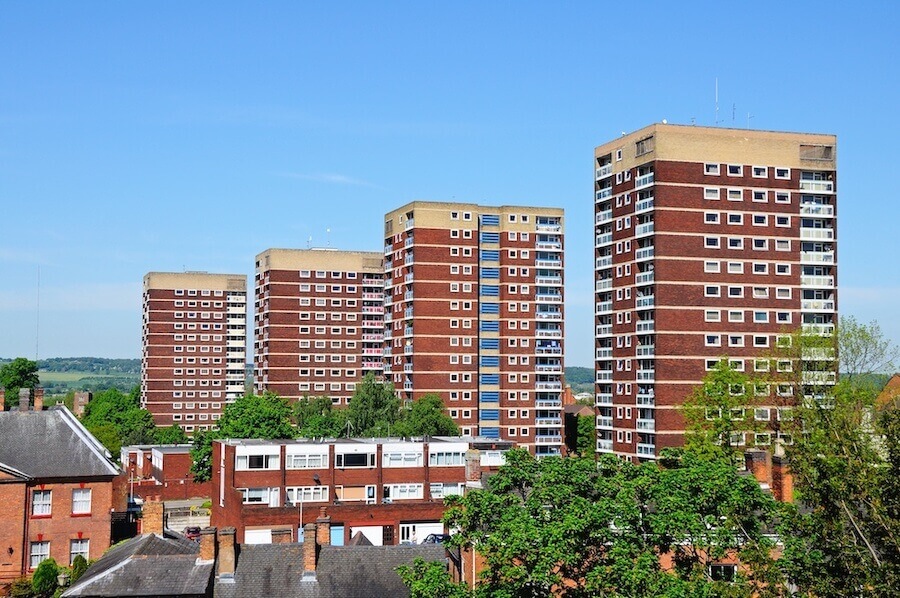Who is responsible for fire doors in blocks of flats?
According to the Regulatory Reform (Fire Safety) Order 2005, it is the legal responsibility of the person or organisation that has control of the building to ensure that it complies with fire safety regulations. That means installing and maintaining appropriate fire doors wherever they are required. For housing associations, fire doors are required in order to:
- Resist fire and restrict smoke spread to reduce risk to life safety and damage to the property
- Provide residents with adequate levels of safety when a fire breaks out.
Failure to provide adequate fire doors could result in:
- Government fines in excess of £55,000
- Imprisonment
- Residents suffering injuries or loss of life
Having helped housing associations understand their legal responsibilities to tenants since 2009, Fire Doors Complete are able to provide expert advice. The objective of our consultancy is to help keep your property legal and safe. That's why our services are both affordable and accessible.
Got a question?Browse Courses:
To learn the skills for yourself, we also provide a range of certified fire door training courses. All courses are designed to give installers, fabricators and property owners a better understanding of how to comply with UK fire safety building regulations.

Timber Fire Doors: Installation Training Module
This training package is intended for those who already have practical fire door installation skills, but require more information about the regulations surrounding timber-based fire doors. The training applies to both new and existing properties.
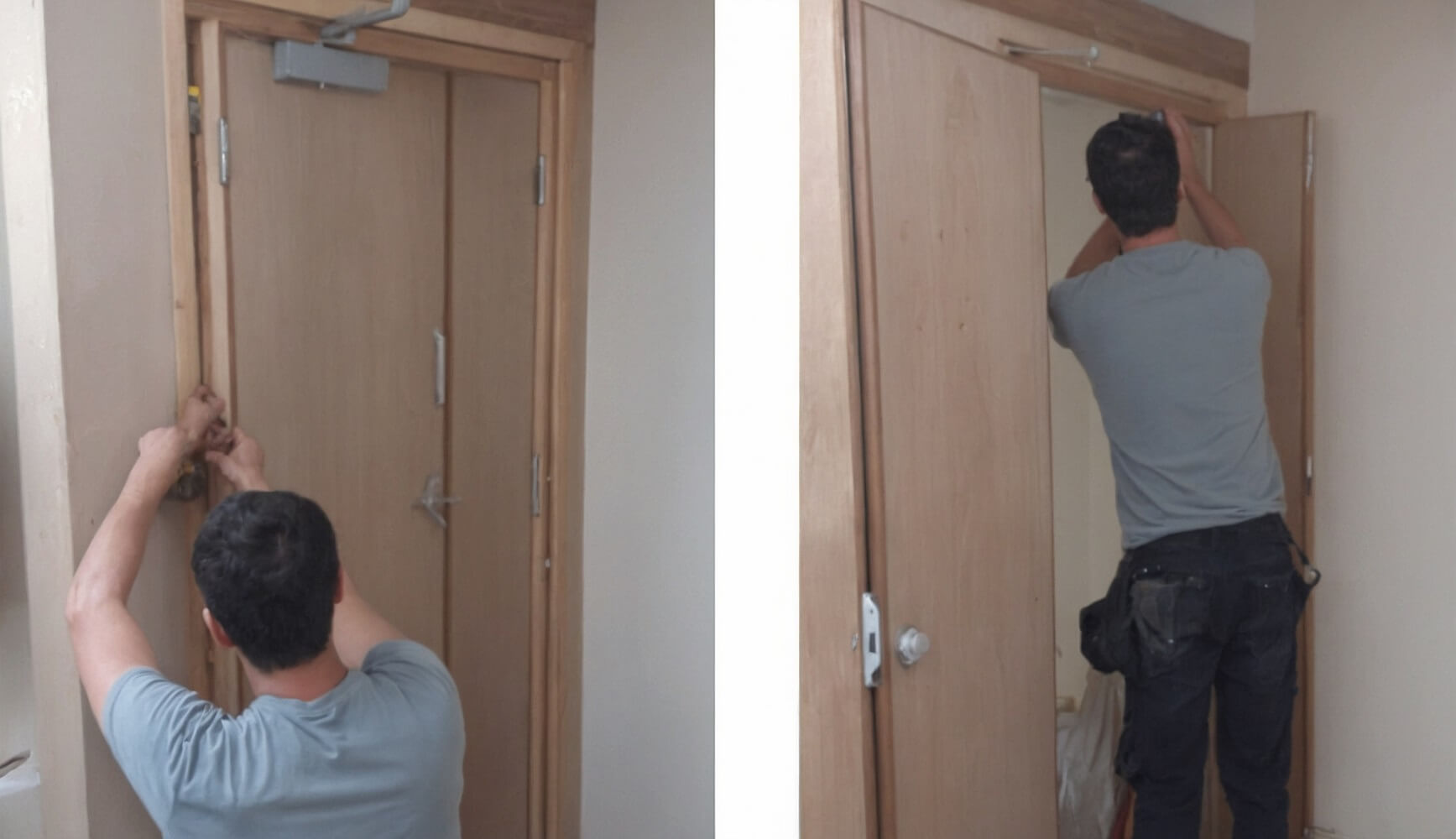
Timber Fire Doors: Maintenance Training Module
This training package is designed for those who require more information about how to properly maintain and repair fire doors in accordance with UK regulations. Delegates will be able to confidently comply with legislation surrounding timber-based fire doors.
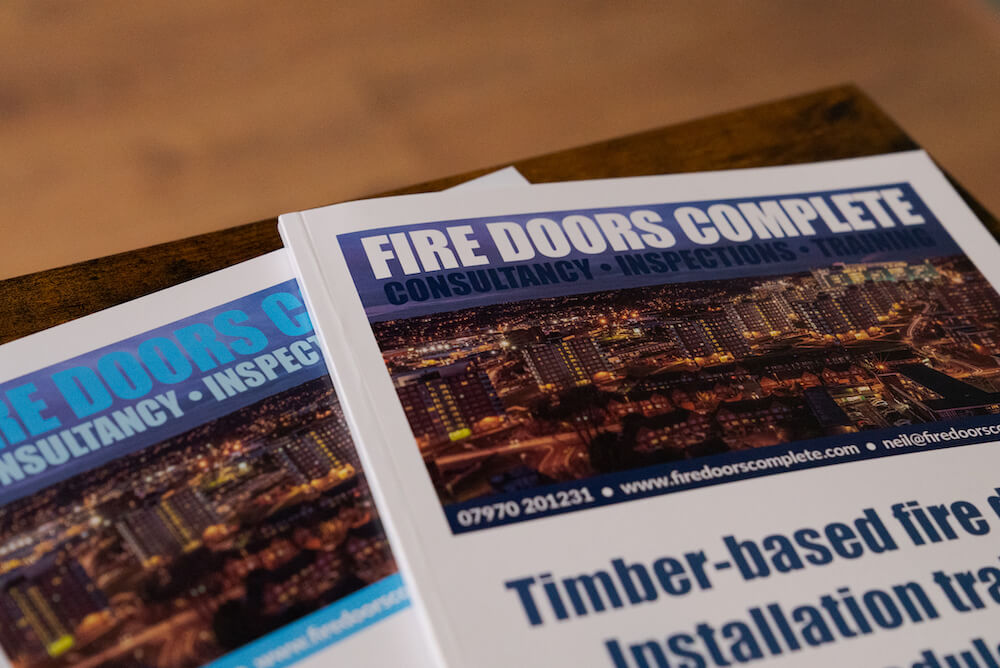
Timber Fire Doors: Awareness Training Module
This training package is designed for those who have a caretaker role at a building. These delegates do not need to have technical fire door knowledge and skills, but will learn how to spot defects in fire doors and report them to the building manager.
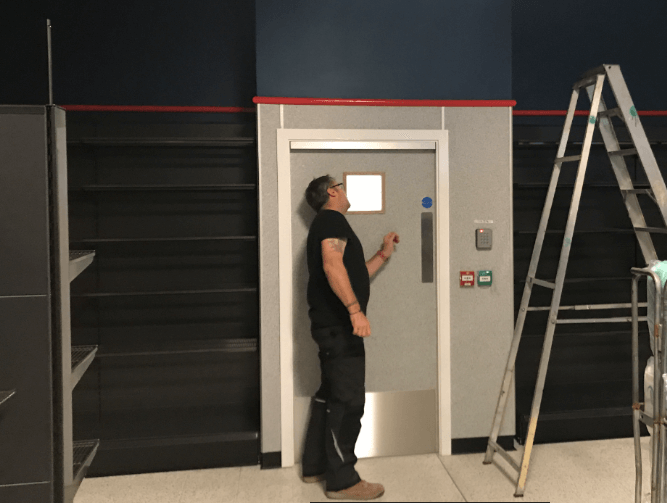
Timber Fire Doors: Inspection Training Module
This training package is designed for those who inspect fire doors for their clients. Candidates are expected to have prior knowledge of timber doors and/or building safety. The course will equip delegates with the skills and knowledge to become professional fire door inspectors.
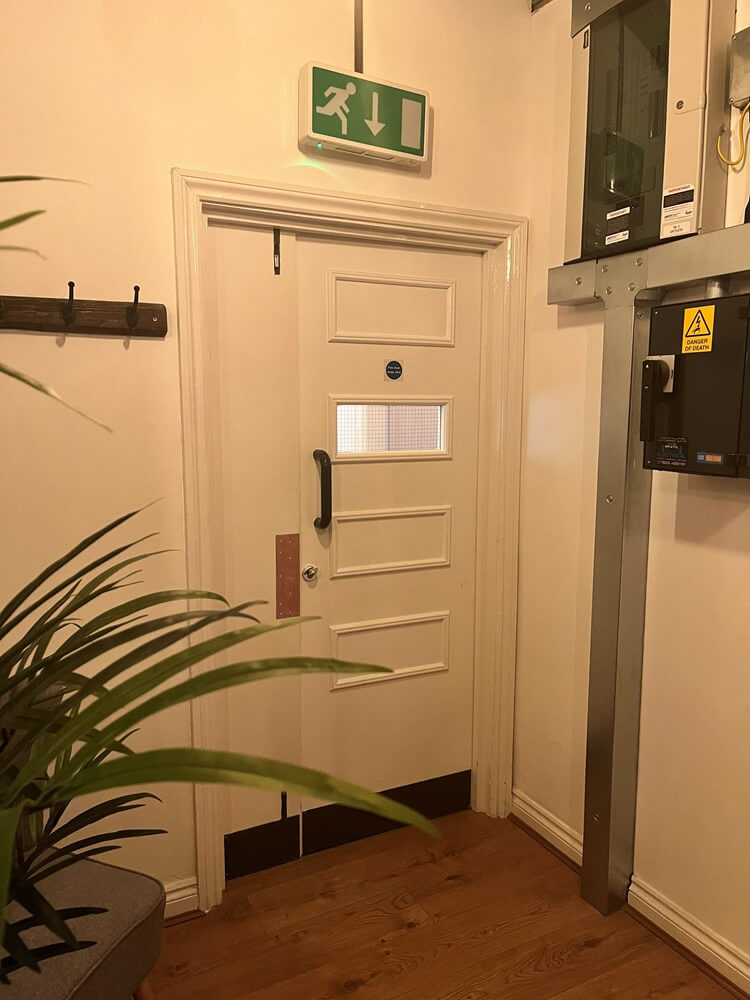
BWF Fire Door Installation Awareness: Two-Day Course
This course promotes awareness of appropriate fire door installation to construction and manufacturing industries. The course has been developed in collaboration between the National Open College Network (NOCN) and the British Woodworking Federation.
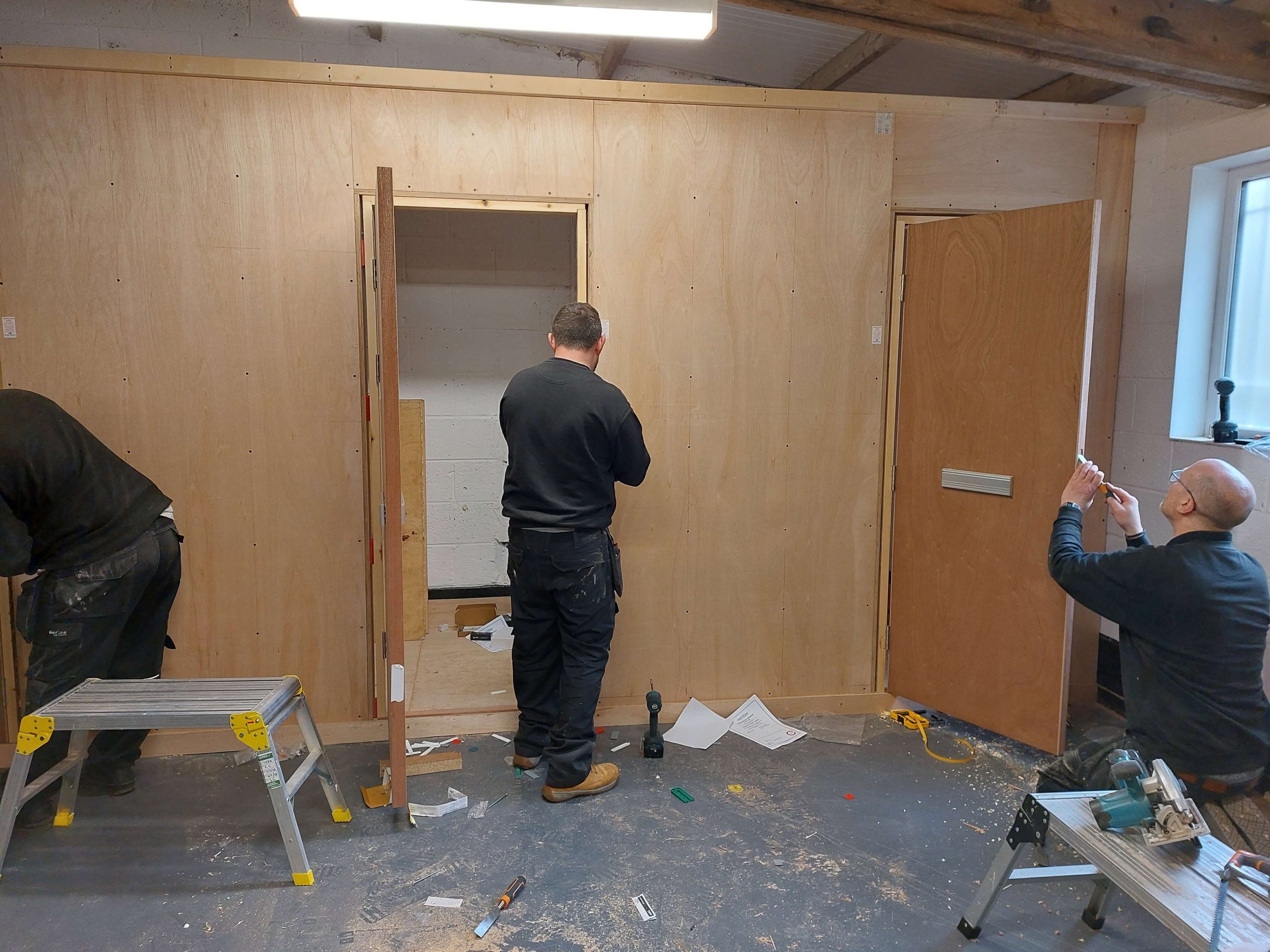
Practical Fire Door Installation Assessment
This is a hands-on practical assessment and provides an opportunity for those that have already attained the theory-based installation certificate to prove that they can correctly install a working timber-based fire door assembly.

Can I Certify a Fire Door?
Gain the knowledge and skills to certify timber-based fire doors with our expert-led course.
Why Choose Fire Doors Complete?

Experience & Expertise
Our founder, Neil Ashdown, has spent decades working with fire doors. We have provided fire door consultancy across multiple sectors.

Real-World Knowledge
All our consultancy is in the interest of everyday public safety. The advice we offer is grounded in real-life fire safety situations.

Affordable & Accessible
In the interest of safety, our fire door consultancy is open to everyone. We aim to make our feedback and advice as clear, comprehensive and jargon-free as possible.

UK-Wide Consultancy
Each one of our expert consultants is happy to travel anywhere in the UK to provide their service. We want everyone to have access to outstanding fire door safety, no matter where they're based.
What are the fire door regulations for housing associations?
Housing associations must meet their legal obligations concerning the Regulatory Reform (Fire Safety) Order 2005 and the new Fire Safety Bill.
As flats owned by housing associations often house hundreds of people, it is absolutely vital that they comply with fire door regulations:
- Fire doors must be fitted to flat entrances and in all places leading to a final escape - these may include landings, hallways and stairwells
- Fire doors must be maintained in good repair and efficient working order
As leading experts in fire door safety, we can help you specify the right fire doors for your properties. We can also assess the installation, maintenance requirements, and accessibility of your current fire doors. In every sense, we are here to help. We provide clear, comprehensive consultancy in a respectful and jargon-free manner. Our primary concern is the safety of your building and its residents.
Contact UsFire Door Compliance FAQs for Housing Associations
Welcome to our Fire Door Compliance FAQs tailored for Housing Associations. In the aftermath of the Grenfell Tower tragedy, our commitment is to assist housing providers in achieving the highest standards of fire door safety. Explore the following questions to understand your legal responsibilities, regulations, and how our consultancy services can ensure the safety of your residents.
Safeguard Your ResidentsWho is responsible for fire doors in blocks of flats?
According to the Regulatory Reform (Fire Safety) Order 2005, the legal responsibility for fire doors in blocks of flats lies with the person or organisation that has control of the building. This entails installing and maintaining appropriate fire doors to resist fire, restrict smoke spread, and enhance resident safety during a fire outbreak.
What are the potential consequences of failing to provide adequate fire doors for housing associations?
Failure to provide adequate fire doors for housing associations could result in government fines exceeding £55,000, imprisonment, and, most critically, residents suffering injuries or loss of life. Our consultancy services, developed since 2009, guide housing associations in understanding and fulfilling their legal responsibilities to tenants.
What are the fire door regulations for housing associations under the Regulatory Reform (Fire Safety) Order 2005 and the new Fire Safety Bill?
Housing associations must comply with fire door regulations that include fitting fire doors to flat entrances and all areas leading to a final escape, such as landings, hallways, and stairwells. Additionally, fire doors must be maintained in good repair and efficient working order. Our expertise in fire door safety ensures compliance with these legal obligations.
How can Fire Doors Complete assist housing associations in meeting fire door regulations?
As leading experts in fire door safety, we help housing associations specify the right fire doors for their properties. Our consultancy services cover assessment of installation, maintenance requirements, and accessibility of current fire doors. We provide clear, comprehensive advice in a respectful and jargon-free manner, prioritizing the safety of buildings and residents.
What is the objective of Fire Doors Complete's consultancy services for housing associations?
The objective of our consultancy is to help housing associations keep their properties legal and safe. With a focus on affordability and accessibility, our services guide you through legal responsibilities, ensuring your fire doors meet the highest safety standards, especially crucial for the well-being of residents.



